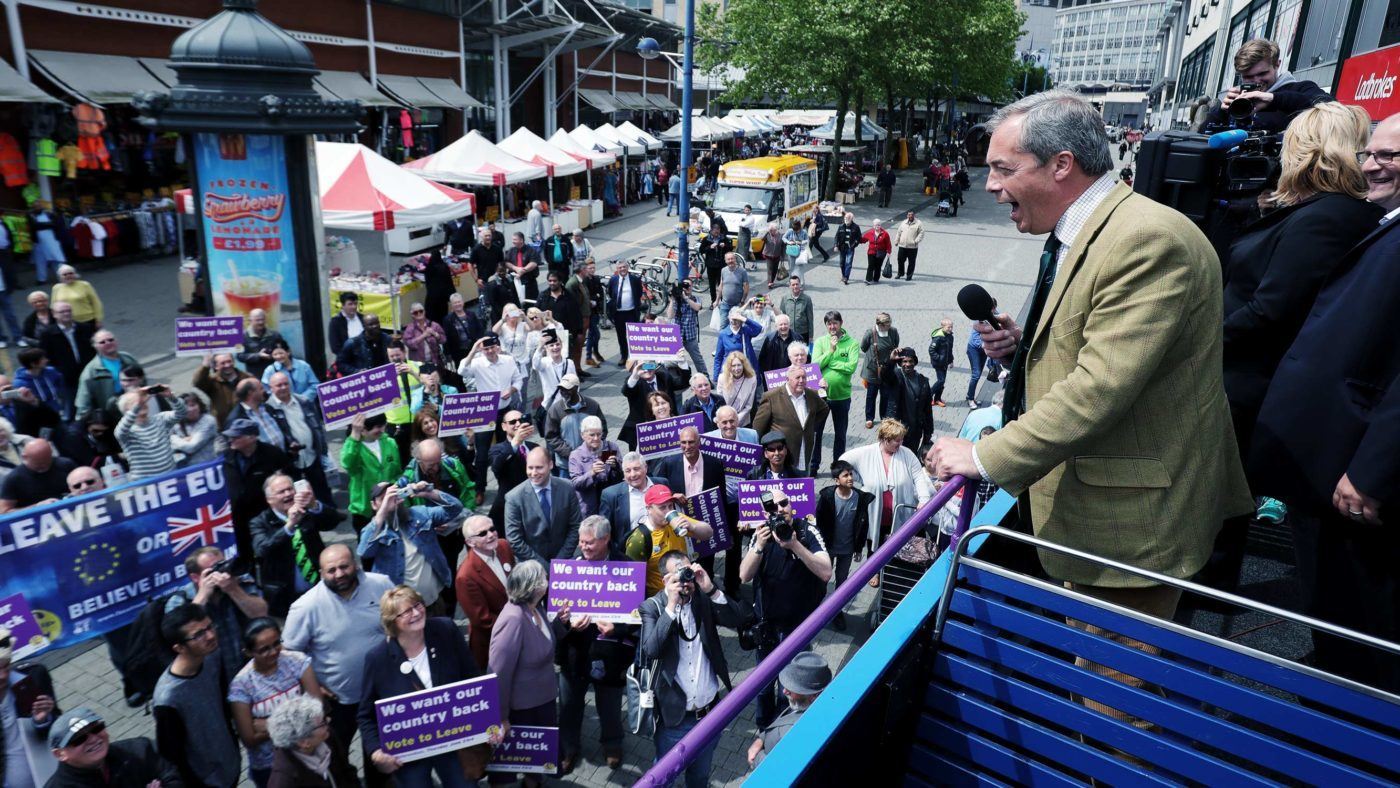How many relationships has the EU Referendum already cost you? One? Two? Are you now sleeping downstairs next to the dog’s basket or is the dog also refusing to sleep with you since you whispered your allegiance to the ‘wrong’ side? Blackballed by local newsagents since you muttered your admiration for Dave/Boris [delete where appropriate]? Maybe your Tinder account has seen fewer rightward swipes since you added that line describing your opinion of Jean-Claude Juncker. If so, you might be wondering: has there ever been a political question that has given rise to quite so much bad blood? Even general elections don’t stir up this many hard feelings; not even those that involve Nick Robinson riling the Scots.
Across the news, we see politicians break rank and once loyal friends are set against each other like rheumatic Chihuahua aching on their chains in inclement weather. Apparently, Dave and Boris are now no longer friends and Dave and Michael refuse to share the same elbow space. Dave is snubbing colleagues in corridors and Boris is no longer applying a touch of brake whenever he sees Remainers crossing the road. At times, understanding the debate is like unwinding a schoolyard witch hunt between petulant teenagers. Iain isn’t friends with George since Priti told him that Theresa heard Jeremy saying that Nigel said something horrid about Nicola. Except these teenagers come bursting not with acne but with government statistics. ‘Shut up! You said your trade imbalance was 2.5% bigger than you admitted in treasury forecasts!’ ‘Oh, you liar! Don’t think I didn’t see you sneaking off to compare fiscal guarantees!’
The problem, of course, is in the question. The Referendum demands a binary choice when only the most vehement advocates of either side find the words ‘Leave’ and ‘Remain’ useful. A thousand and one options would more aptly describe the nation’s mood. ‘No idea’, ‘I wish you hadn’t asked’ and ‘leave me alone’ are closer to how most of us feel.
And then there’s the quality of the national debate. It is not a debate as much as it’s a contest to see who can labour under the least amount of misinformation. This is no longer about what might be right for the country but a question of epistemology: whether there are any such thing as independently verifiable ‘facts’. Establishing some objective truth ahead of the referendum is as much fun as reading French philosophy of the 1960s but without the comfort factor of black turtlenecks and the music of Serge Gainsbourg. Is it any wonder we are all becoming so bad tempered?
I have been as guilty of this as any; becoming short, snappy, and sometimes rude when I hear somebody offer ‘facts’ which I know to be fabrications. I’ve found myself in too many terse email standoffs in recent weeks, with people that were regular correspondents disappearing beyond the great divide of internet partisanship. Yes, I was truculent and, yes, after trying to explain fifteen times why I believed their tapioca trade figures fake, I did lose my temper and call them something I now regret not including in a Spectator limerick about President Erdogan. I was belligerent but, perhaps, that belligerent demon was always within me. Who knew that it would take tricky tapioca trade figures to bring it out?
Once casual friendships are now gone the way of the British Steel industry or at least in foreign ownership. I could and do forgive them as I would hope they could and would forgive me. Yet I know that some bridges may never be mended. Former friends see me as I see them: people with completely incompatible views. They have joined the ranks of joggers, real ale drinkers, James Corden fans, and people called Kardashian who I never want to speak to again. Yet at the same time, I also find myself growing more loyal to some on the other side of the debate who, like me, admit the difficulty we’re in.
And that, ultimately, is what the referendum draws out most strongly. The ‘issue’ isn’t really the issue. It’s how we consider that issue. It’s whether we view the world as knowable or unknowable. Are we humbled by ‘not knowing’ or do we arrogantly proclaim a ‘truth’? Those that see it as unknowable are psychologically more suited to surviving this moment of political extinction. Despite the political instinct to believe that they are eternal and immutable, issues such as sovereignty, nationhood, and union are merely constructs of the human mind. No law dictates the truth of one or all of them. They are convenient concepts which make it easier for us to function as a society. Come the plague of 2082 (caused, no doubt, by a James Corden fan sharing his real ale with a jogger called Kardashian), this land might well be owned by the bacteria and matters of Europe will have to be decided of the microscopic scale. Be humble, I say, and we might yet make it through.
‘The only wisdom we can hope to acquire,’ wrote T.S. Eliot, ‘is the wisdom of humility: humility is endless’. In the EU Referendum, humility should be endless but, this far, it seems to have been under a trade embargo. Many bad words have been said in the past few months and many more remain to be said in the weeks ahead. On the other side, when all is done and the question answered, we might admit how futile it all was and what an impossible question we were set. Dave and Boris might no longer be friends but, I hope, at least we can renew our friendship. Just so long as you are humble enough to admit that your tapioca trade figures were always a lie.


